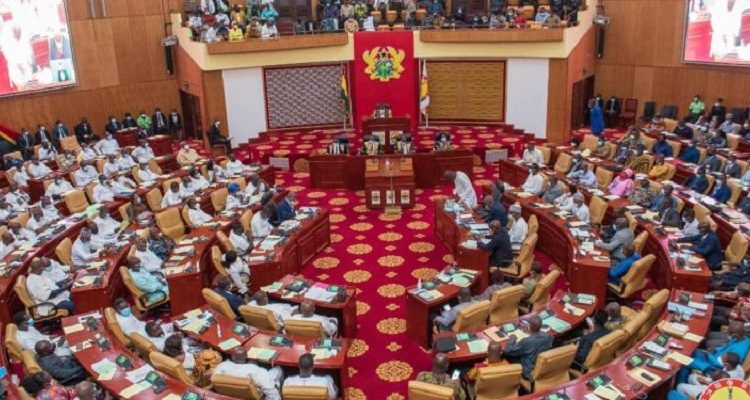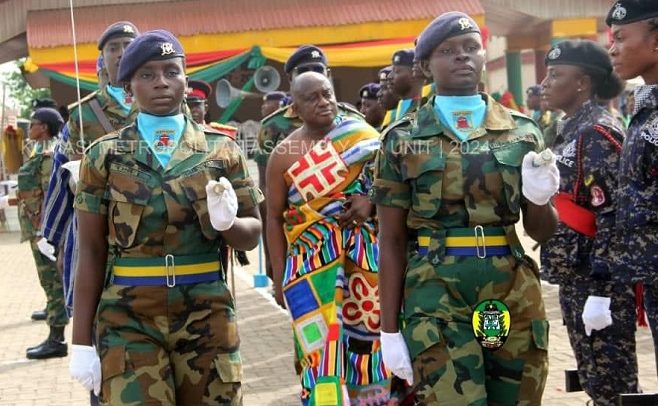
Parliament has passed the Vigilantism and Related Offences Bill, 2019 into law.
The Bill was laid and subsequently passed despite concerns raised by the opposition National Democratic Congress (NDC) and some civil society organisations that more work needed to be done.
For the NDC, the Bill was “unnecessary and a deliberate diversion to allow the governing New Patriotic Party (NPP) to continue to build its militia infrastructure ahead of the 2020 elections.”
In their view, there are fundamental, conceptual and policy issues that completely undermined the Bill, such as its title. They said the Bill misdirected Parliament and the nation by incorrectly characterising the problem.
However, there was no objection in Parliament Monday when the Speaker put the question for its approval.
As Adom News’ Abednego Asante Asiedu reports, when the Prof, Mike Oquaye said “all those in favour of the motion say aye,” the response was loud and resounding.
And when he said “those against say no,” the silence was deafening, leaving Prof. Oquaye to conclude “the ayes have it. The Vigilantism and Related Offences Bill, 2019 is duly read and passed.”
The law will now be forwarded to the presidency for presidential assent.
Deputy Attorney-General, Joseph Kpemka, in an interview with Abednego, welcomed the passage of bill.
“It is very refreshing and again it opens a certain chapter in our history and the development of our law,” he said.
He is convinced that the law will stand the test of time, deepen Ghana’s democracy and ensure that acts of violence and any other actions of that nature “put behind us for good as we match towards the land that we aspire for ourselves. It is the day for all of us to celebrate.”
Attorney-General, Gloria Akuffo sent the Bill to Parliament on April 11.
What will Vigilantism and Related Offensive law do?
The purpose of the law is to disband political party vigilante groups and forbid acts of vigilantism in the country, following the continuous violence that has characterised the country’s by-elections.
By-elections in Atiwa, Akwatia, Chereponi, Talensi, Amenfi West and more recently, Ayawaso West Wuogon, have all been marred by acts of violence.
The law applies to persons who participate in the activities of a vigilante group that is associated, related, connected or affiliated to a political party, political party officer, or a political party member.
It also applies to persons who act as land guards and those who engage in other acts of vigilantism.
The law will not apply to persons who live within the same neighbourhood or community and who act in concert with the aim of preventing an offence from being committed within that neighbourhood or community.
Also, persons who have witnessed the commission of an offence, acts with the sole aim of preventing the further commission of that offence or any other offence, are not targets of the law.
What happens if the law is breached?
Leaders of the disbanded political party vigilante groups shall, within one month after the coming into force of this Act, by notice in writing, inform the Minister of the formal disbandment of their political party vigilante groups.
A leader of a disbanded political party vigilante group who fails to comply with provisions of the law, commits an offence and is liable on summary conviction to a term of imprisonment of not less than five years and not more than 15 years.
Similarly, a person who violates the provisions will be liable on summary conviction to a term of imprisonment of not less than five years and not more than fifteen years.
There is more when you click on this.
Read Full Story























Facebook
Twitter
Pinterest
Instagram
Google+
YouTube
LinkedIn
RSS